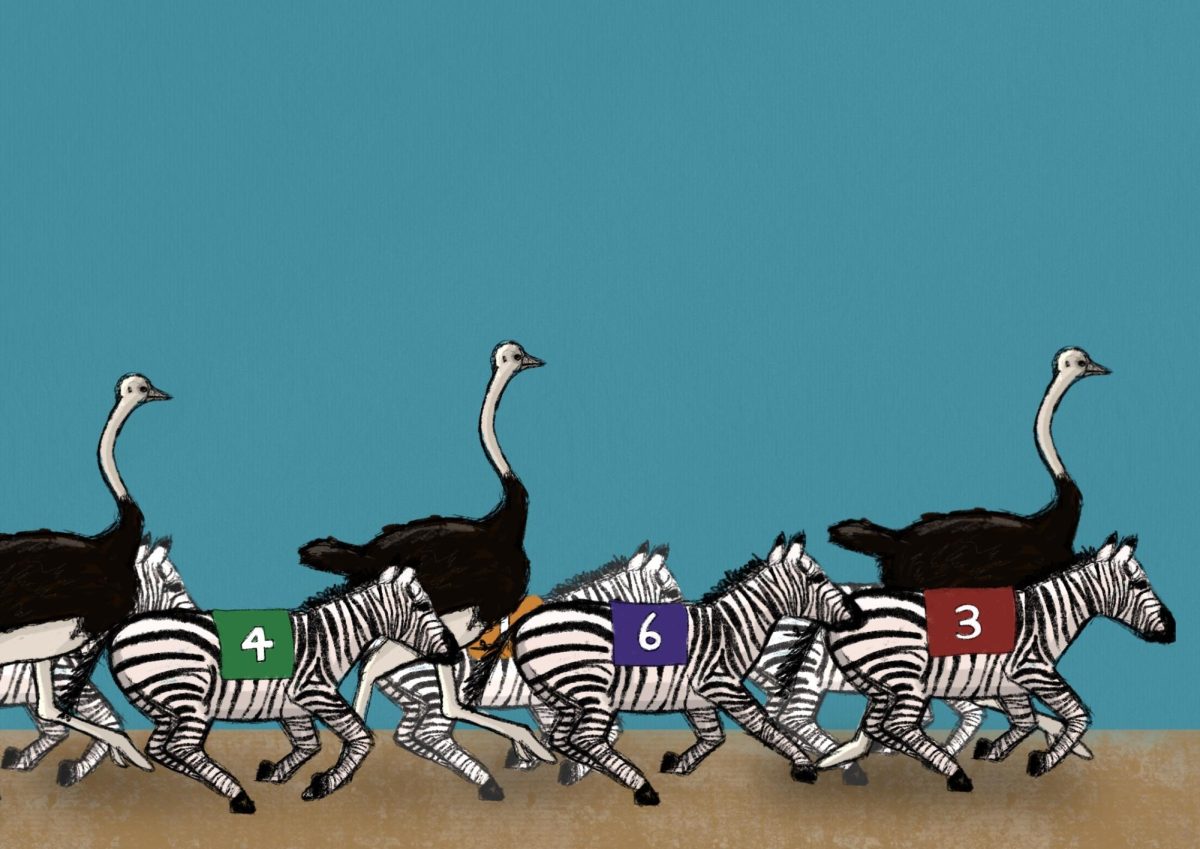Every year, ostriches, zebras and camels all line up at the New Orleans Fair Grounds Race Course stadium surrounded by an inebriated, cheering crowd of Tulane students. This unique and rather strange event poses an obvious ethical problem, further emphasized by watching humans attempt to ride zebras and ostriches who are untrained and unfamiliar with being ridden.
Moments later, the jockeys get bucked off their animal’s back. Every year, horse race tickets sell out, but some Tulanians choose not to attend in solidarity with the animals. But the exotic animal races raise another question: Why is it unethical to race exotic animals, but ethical to race horses?
The exotic animal races have occurred annually at the Fair Grounds stadium since 2012. “Exotic Animal racing [provides] families and fans with an alternative entertainment experience by cheering Camel, Ostriches and Zebras across the finish line,” Doug Shipley, president and general manager of the Fair Grounds, said on their website.
This form of “alternative entertainment” is inhumane. In the weeks leading up to the races, there were many conversations on campus in which students denounced the races, advocated for exotic animals’ well-being and questioned animal abuse. Yet the horses, who are the animals regularly raced at the grounds, seem to be left out of the conversation.
Questioning the morality behind any type of animal racing for monetary profit is a conversation that we should be having. Is it ethical to train animals to compete with each other for our own viewing pleasure? But this conversation should make us wonder why only exotic animal species evoke outcry and passionate reactions.
Most of the objections against the exotic animal races stem from the idea that ostriches and zebras are not meant to have a human jockey. But that remark assumes that horses are intended to be ridden and raced. If all animals are created equally, shouldn’t the protest for their well-being and against their abuse be as well? Further, the Fair Grounds stadium hosts only one exotic animal race annually but is home to numerous horse races throughout the year.
The awareness of the Tulane University community should not only be focused on the exotic animal races, but also on the principle of this outdated sport that jeopardizes all animals’ health conditions. Watching a jockey attempt to ride a wild zebra is an experience strong enough to motivate an outcry in anyone — it looks unnatural for the animal and rider.
But just because horses have been conditioned, both in our minds and our history, to be ridden, it doesn’t change the cruelty of the practice. Tulanians need to witness exotic animals being raced to realize that it should not be done to any animals at all.



